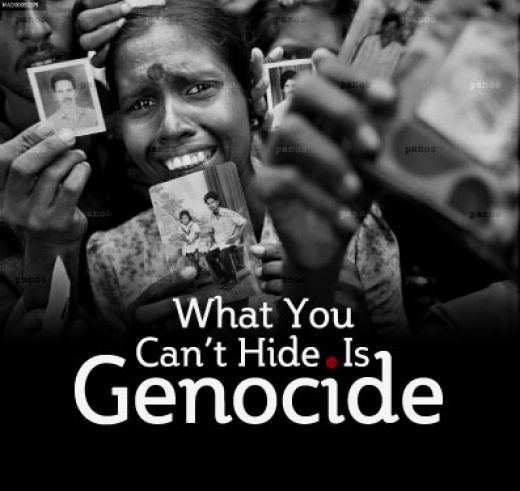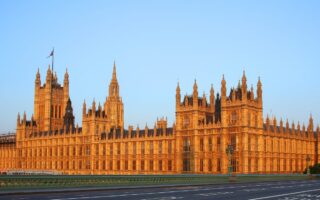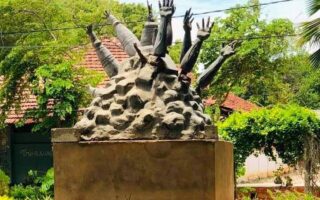 Calls for an independent, international investigation into the crimes of ongoing genocide against the Eelam Tamil nation by Sri Lanka has been a constant practice of Tamils in the homeland, diaspora and Tamil Nadu for at least the past five years. Since the end of the Mullivaikkaal massacre in May 2009, the supposed ‘end’ to the conflict, there has been three resolutions on Sri Lanka that has been passed on in the United Nations’ Human Rights Council (UNHRC).
Calls for an independent, international investigation into the crimes of ongoing genocide against the Eelam Tamil nation by Sri Lanka has been a constant practice of Tamils in the homeland, diaspora and Tamil Nadu for at least the past five years. Since the end of the Mullivaikkaal massacre in May 2009, the supposed ‘end’ to the conflict, there has been three resolutions on Sri Lanka that has been passed on in the United Nations’ Human Rights Council (UNHRC).
The three resolutions, of which the last was passed on 27th March 2014, have been US drafted and heavily pushed by the West, all of which have been successful in being released with no real friction from countries, except those that came from the Rajapakse regime and its allies. These resolutions which consistently pushed for a ‘reconciliation’ process, a national investigation and a solution within a unitary state structure were strongly opposed by the Tamils only. With this being a part image of the Eelam Tamils’ struggle for self-determination and the involvement of the International Community, it’ll be interesting to have a look at a small picture of the current situation, after the releasing of the third resolution last month.
In a sphere where democracy is the language spoken and human rights is the air inhaled, one would think that the strong rejections of the first two resolutions by the Eelam Tamils would have resulted in a better, much stronger third resolution. Given the case that the Eelam Tamils were and are the victims of the genocide, a fact which is backed by the recent Permanent People’s Tribunal (PPT) verdict, a person in this sphere would hope and believe that a more genuine and rightful resolution would have been passed as the third. However, much to one’s disappointment the third resolution proves to be an effortless step in ‘promoting accountability, reconciliation and human rights’.
The deliberate omission of the phrase ‘Tamil’ or ‘Eelam Tamil’ anywhere in the resolution itself illustrates the
intention of the International Community to not recognise Eelam Tamils as a nation and as the sole victims, who are in a desperate need of a long-lasting political solution. Further to this, the call for an independent, international investigation into crimes of genocide since independence has been made comfort through a ‘comprehensive investigation into alleged serious violations and abuses of human rights’ and that too only for the ‘period covered by the Lessons Learnt and Reconciliation Commission’. This in effect is once again looking to seek accountability through the involvement of the Sri Lankan state, i.e. the perpetrators of the crimes that are need of investigation. Another point to note is that it is said that this investigation would be ‘with a view to avoiding impunity and ensuring accountability, with assistance from relevant experts and special procedures mandate holders’. However, ironically the recent PPT investigation has not been taken into serious consideration or drawn any special attention to at the UNHRC, even though it had assistance
from relevant experts, including a former UN Human Rights Coordinator, and followed a special procedure in order to reach its verdict.
The response by the International Community to the calls of the Eelam Tamils through this resolution has once again ascertained the nation on the need to keep firm on the foundations of the struggle. It is ever so evident that it is not the political will of the nation, but the number of lives slaughtered in the final months that is the desired subject matter in this sphere of democracy and human rights.
A solution that will change the policies of the Sri Lankan government and not one that will modify the unitary Sri Lankan state structure is what will be reinstated time and time again in the resolutions that have been passed and will pass in future at the UNHRC. Thus, as a victim of genocide, especially a youth who will lead tomorrow, one can only hope to bring true, permanent peace by being resolute on the principles of the struggle – by having thorough knowledge and understanding of the history, the political spectrum, and the geopolitical demands of the struggle and uncompromisingly fighting until the aspirations of the nation is recognised and respected.
By
Analysis & Advocacy Council,
Tamil Youth Organisation UK


